Last updated on April 7th, 2025 at 08:00 pm
It is known that pellet grills, unlike their traditional coal or wood predecessors, are a more indirect method of cooking meat.
The simplicity and efficiency of pellet grills allow them to be used as a standard kitchen oven since they are easy to use, allowing you to leave them until you return with the food.
Pellet grills are becoming more popular amongst grillers, who are looking for more energy-efficient methods of grilling meats. They take less hands-on attention and are generally safer than flame-producing grills since they don’t really create physical heat directly on the food.
What Is A Pellet Grill?

This type of grill and smoker produces food grade wood pellets using an electronic system that transfers them from a storage bin (hopper) to a firebox. In order to cook the food, the wood pellets are burned to produce smoke and heat.
Their appearance is influenced by indirect offset smokers; early models have similar appearances. A great article by Meathead describes their inner workings.
How Does A Pellet Grill Work?
The pellets are fed into the firebox with an auger rotating from the hopper. Wood pellets are handled by an auger that pulls them gently along a tube. The speed of the auger changes depending on the desired cooking temperature.
In order for the pellets to ignite, there is a heat rod in the firebox. In addition to the pellets, the burning auger and fan are used to keep embers and smoke going while the pellets are lit and the hot rod is turned off.
The indirect method of cooking your food is by diverting the heat source around the heat plate around which your food is slowly cooked. (Unless your model has a direct cooking feature – which you want!)
Consider whether you have access to electricity outside when looking at a pellet smoker. The entire system is powered by an electronic system that requires a source of power at all times.
What Is A Flame Out?
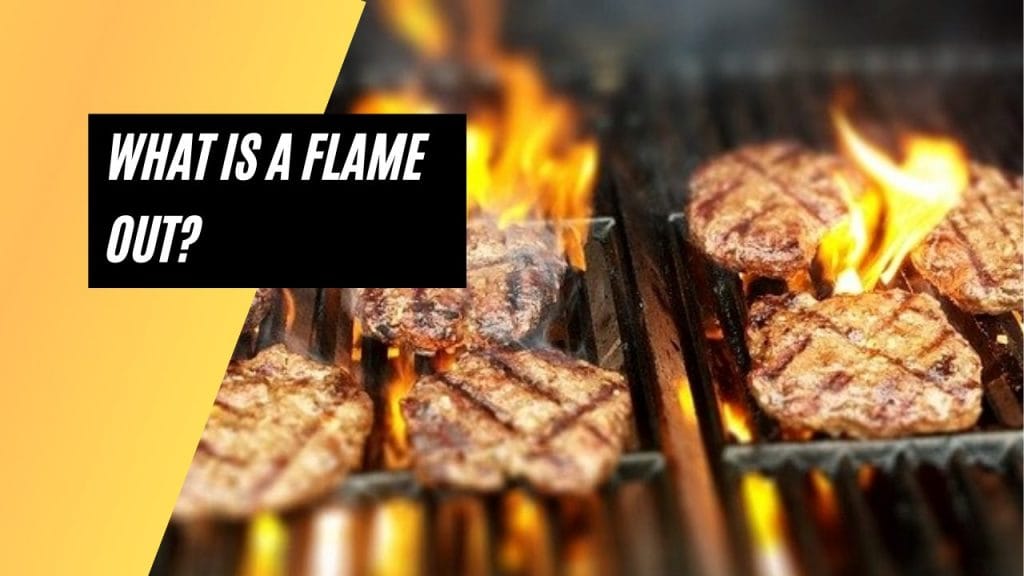
Flameouts occur when the fire goes out during cooking while the firebox fires. Almost every pellet grill exhibits this problem. Fires are often smothered by the ash, which has built up around the fire and smothers the embers.
It usually happens because the smoker box has not been cleaned between cooks and due to user error. Always make sure the firebox and surrounding areas are clean to prevent flameouts.
MAK Grills have a convenient ash-disposal box that can be removed before cooking. If you do not have a shop vac, you will need one. Ash should not be allowed to accumulate. After the ash and embers have cooled down, it is a good idea to sweep up.
Do Pellet Grills Produce Flames?

Even though it might seem complex, this method actually allows for a much more consistent flow of heat, resulting in higher cooking temperatures and requiring less human intervention.
However, this does not imply that there is no flame involved.
Even though wood pellets are burning slowly and steadily, a fire will eventually consume the tiny pellets. In other words, pellet grills do produce flames, though not in the unpredictable or direct way that a traditional grill does.
Causes Of Flames Out In Pellet Grills
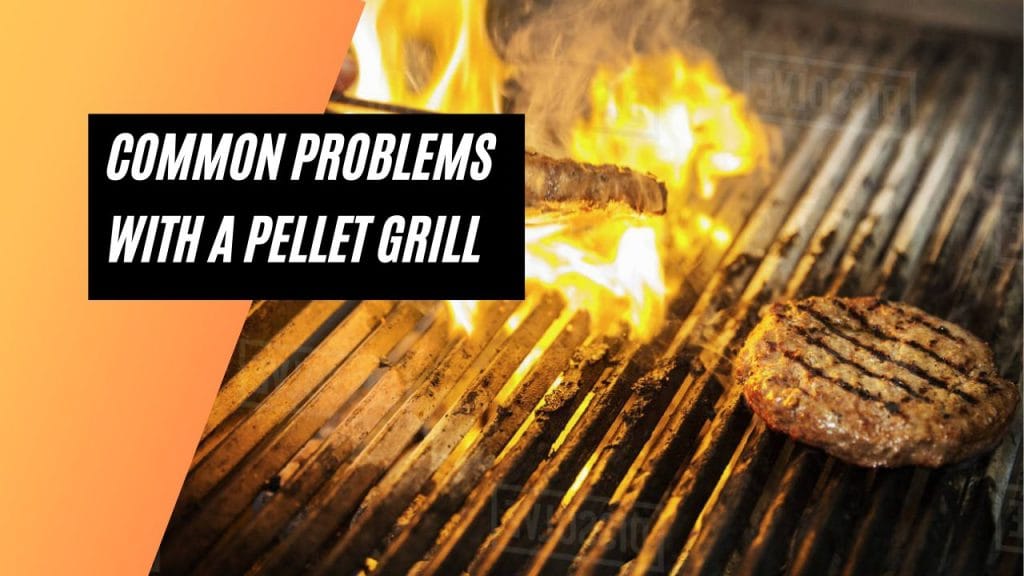
Poor Quality Wood Pellets
The fire can again be extinguished by poor quality pellets. Several guys have mentioned that the stronger and harder woods, such as alder, have a difficult time burning.
- My experience hasn’t been particularly troublesome, but it does happen occasionally. There is always the option of going back to the supplier and questioning it.
- When it comes to pellets that aren’t going to be used in the hopper, an airtight container seemed like the best option. Obviously, pellet suppliers advise not to close a bag or box when your pellets are still in it, or else the pellets might condense. They are kept in the garage so they are dry.
- There are a lot of people who point to the wood pellet brand when it comes to flameouts, but it’s also more often than not how the pellets are treated that causes them to burn out.
- The moment moisture penetrates the pellets, they are toast (ruined), ruined. The compost or garden would be a better place for them. My experience with pellet stoves for heating and pellet burners for biomass has been limited, but I have worked with them a lot across Europe.
- When you need to store wood pellets on a truck-sized system, you need it to be completely waterproof. Transporting the pellets, then transferring them to the commercial hopper, is part of the process. In order to succeed, quality assurance was essential.
It was amazing how similar the pellet grill smoker was to the stove and like many people wood fire stove pellet stoves were where it all started before it crossed over to residential pellet grill smokers.
Fan Not Working
The problem occurs after the system has been used for some time, possibly even for quite a few years. A certain amount of maintenance must be skipped for the problem to begin.
There may be times when fan movement is restricted because of grease buildup, so a simple clean is all that’s required.
I have been able to solve this problem quickly sometimes by putting the fan on a few dozen times manually with my finger with everything off. Afterward, you should do a thorough cleaning.
GFCI Keeps Tripping / Circuit Breaker
Basically, this is one of the most common components in a pellet grill that tends to wear out or break down.
There could be many causes of a broken hot rod on a pellet grill tripping the GFCI. It is the most common problem with pellet grills tripping the GFCI. In summary, I would urge you to call the supplier first, but give a little overview of what you need.
How Do Indirect Flames Grill Food?
It may be puzzling for you how a pellet grill can grill anything at all if it does not cook the meat with direct flame as do traditional grills. Answering this question is straightforward.
Even though there are no direct flames on the grill, there is still a substantial amount of heat being delivered to the surface of the grates (by the fire in the burn pot).
Due to their ability to regulate the heat so well, pellet grills offer a more thorough and consistent cooking experience than traditional barbeques. Cooking meat this way maintains a more steady and uniform temperature, reducing food burning.
While pellet grills have garnered a lot of attention, many grill lovers want the traditional results of traditional grilling, especially the classic sear that makes grilled meat so succulent. Although the meat you grill will be more tender, switching to a pellet grill doesn’t mean you’ll have to sacrifice quality.
How Can I Achieve A Direct Flame On A Pellet Grill?
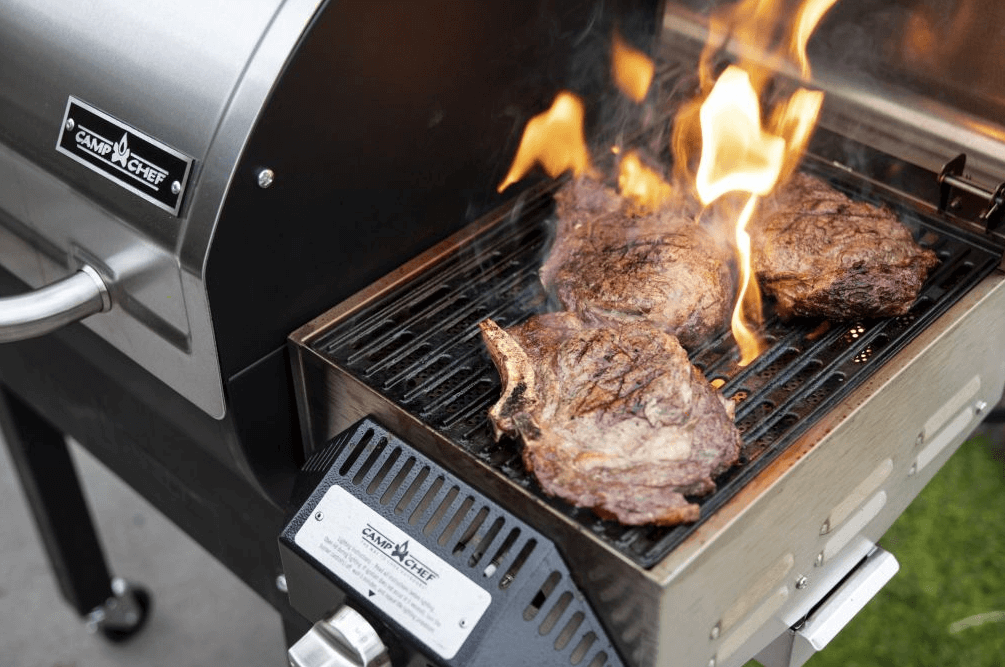
You aren’t out of options if you don’t want to give up direct-flame grilling, but you do want pellet grills because they’re energy efficient and simple to use.
Direct-flame pellet grills are an option for some pellet grills on the market. A direct-flame access model will typically require very high temperatures, so you will just have to look for one that offers this feature.
The use of direct flames when grilling, whether you use a pellet grill or a traditional grill, is not without its risks. It is never a good idea to cook with fire, as this method involves intense heat, so it should not be attempted by newcomers.
By accidentally drying out or burning the meat, you can put your safety at risk as well as ruin your cooking experiment.
Be sure that you closely monitor the process of using your pellet grill and always keep it clean if you want to invest in a pellet grill that provides direct-flame access. Putting the grill rack in the oven before the meat is grilled will ensure that there is no grease fire and that the meat is as tasty as possible.
The Pros and Cons of Pellet Grills With Direct-Flame Access

PROS
- Pellet grills, according to those who claim they cannot actually cook due to their inability to generate sufficient heat.
- As I’ve previously discussed in my article on which pellet grills get the hottest, there is some truth to that, but pretty much all pellet grills can achieve at least a reasonable level of grilling/searing performance.
- The direct flame access of pellet grills does get hot, so it’s a feature that many people look for when selecting a pellet grill.
- I discuss the benefits of erecting a BBQ smoker in my article on the benefits of pellet grills, but pellet grills are frequently used primarily if you want to cook meat fatty pieces and produce food with amazing flavor.
- As there is no supplemental heat, fat and grease drop through the grill during the long and slow cooking process, and they are not always adequately removed or collected.
- Pellet grills come equipped with a variety of grease-collection designs/methods. It is a common feature of Traeger products, whether it’s one of the Pro Series, Ironwood or Timberline models, that the grease is collected on a completely flat, solid grease tray to be deposited in a bucket or container mounted internally.
CONS
- The flame is let through the gaps/holes, which are common on pellet grills that offer direct access to the flame. Due to its shape, the grease tray may trap some grease when closed, but it will not generally cause problems.
- In contrast, brands like Weber Smoke Fire don’t have a grease tray at all and have direct flame access, which can create problems.
Will Pellet Smokers Have Grease Fires?
Yes, it might be possible. When you don’t clean your grill or smoker, you can cause grease fires. To ensure a pellet smoker has a grease trap system and deflector plates, it’s important to check the specifications when reviewing it.
The fat will render significantly more after cooking pork belly for six hours. Grease fires can be caused by fat stored near heat sources. Grease fires can and will occur in pellet grills manufactured by some manufacturers who do not provide adequate grease drainage.
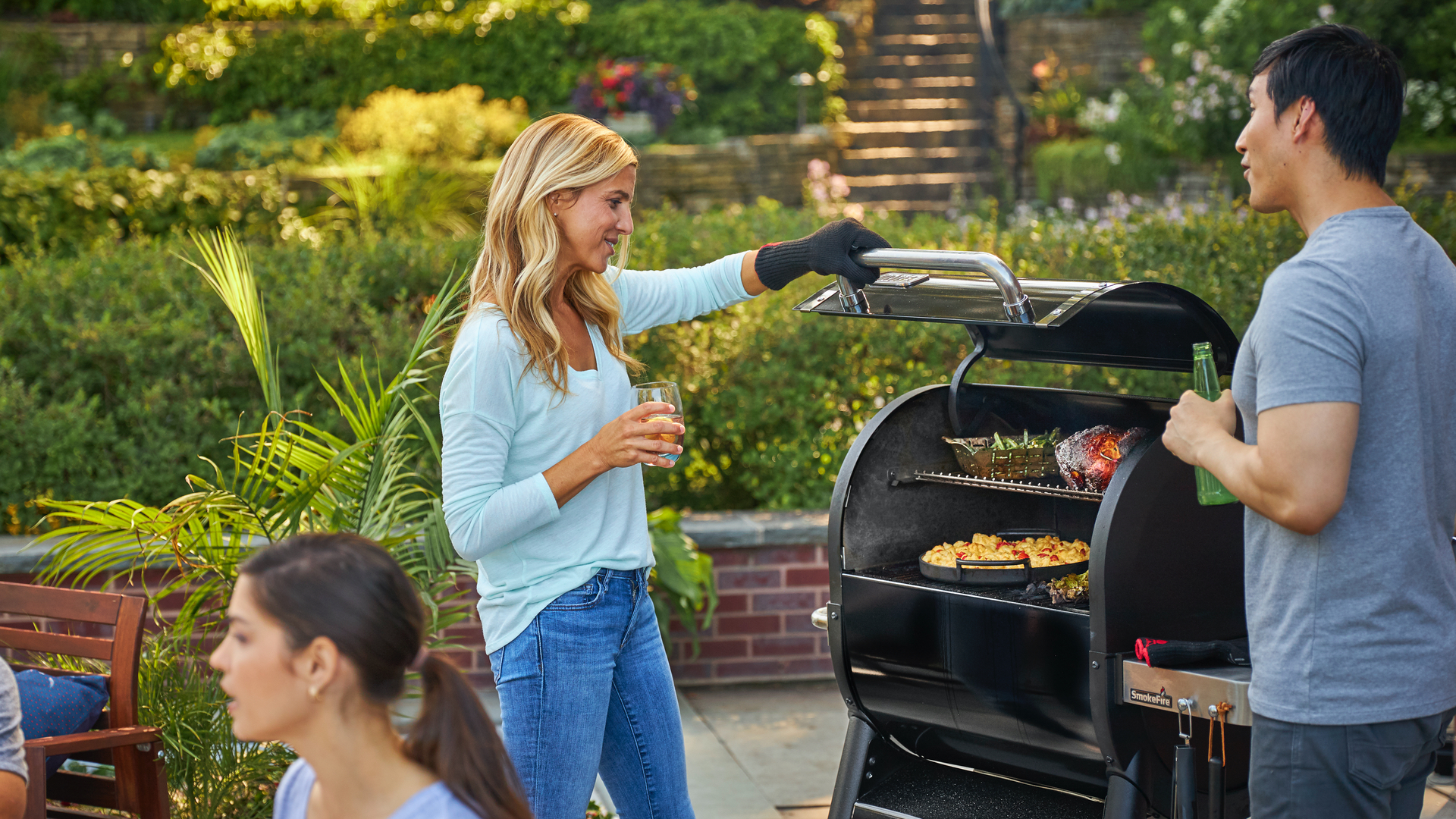
Therefore, clean the deflector plates and direct grilling area. Check to see if the grease drain and buckets are clear and cleaned. Make sure your grill’s grease drainage system is functioning properly.
A grease fire can be prevented by turning off the smoker (so the pellets do not load), closing the lid, and sealing the vents to keep any oxygen from getting into the fire.
Temperatures On Pellet Grills and Smoker
All grills and smokers have temperature fluctuations (pellets and charcoal). If you look at a pellet barbecue community, you will see complaints about temperature fluctuations. Don’t be alarmed by the fluctuations, this is normal. They also have ovens.
The important thing is to understand that smaller models, or models built quickly, not paying attention to electronic temperature controllers and probes, will have VERY LARGE oscillations.
Large fluctuations should be avoided by purchasing a high-quality pellet barbecue that is produced directly and invested in temperature control and grill design. There is no point in having to upgrade your temperature system.
Common Problems With A Pellet Grill
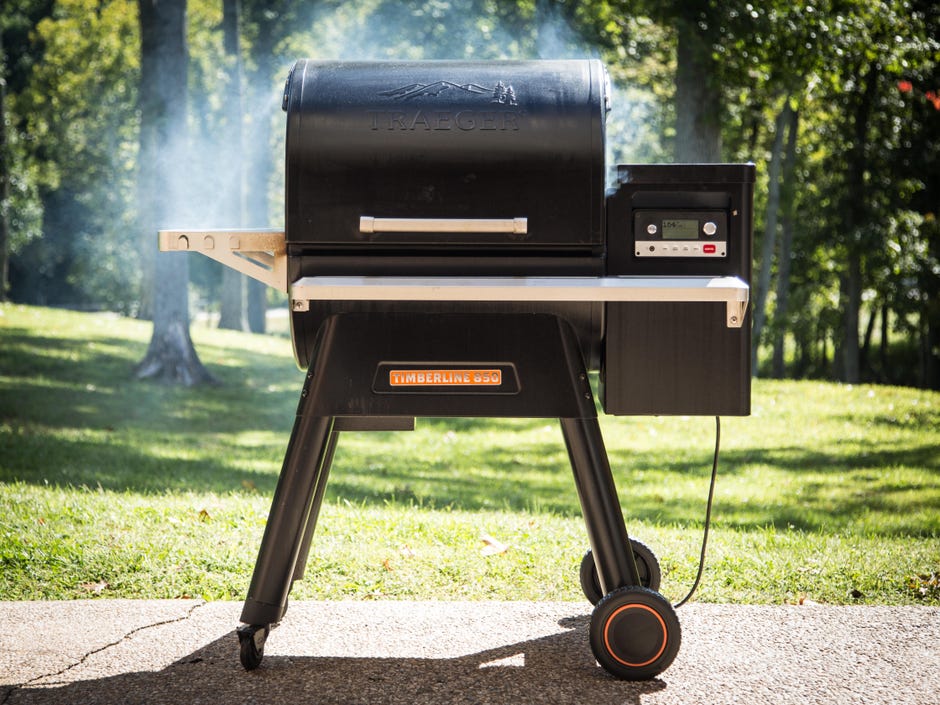
Technical Problems With Your Pellet Barbecue
Just remember to turn off and unplug your pellet grill before you start poking around with any of these technical or performance issues, yes, I know common sense, but it’s still worth mentioning.
- The computer/screen turns on
- Auger jams from pellets
- The pellet grill does not turn on
- The fire goes out during cooking
- The induction fan not working
- GFCI keeps tripping/circuit breaker
- The computer/screen does not turn on
You need to list the obvious answers first just to make sure it’s plugged in and the GFCI (Ground Fault Circuit Breaker) or circuit breaker won’t trip. Then the electric juice flows to start on the pellet grill.
If the fuse is gone, check the fuse on the pellet grate – very often the hot rod is going off or is damaged in some way and needs to be replaced.
Pellet Grill Auger Jams
I learned the hard way about this, it often happens because people leave the pellets in the hopper a little too long (always less than a few weeks before putting it, max I leave them in the hopper before it’s about a month) just like I did.
If the pellets get some moisture from being in the hopper, they will start gnawing as they pass through the auger and this will lead to auger seizure and other problems to be avoided.
If it is not the moisture in the pellets that is causing this, then a part is probably broken or faulty, contact the supplier or where you got it.
Tree Construction
This could be a basic maintenance issue in the first place, even if the pellet grill doesn’t produce much ash. I still like to clean it after every cooking because I have learned from experience that if you don’t do this you can smother the fire and it just won’t ignite.
Moisture In Pellets / Old Pellets
This is another that I found out most of the time and then the pellet grill company takes the blame, that’s what I did, and then it was put in my place when we found out what it was all about.
If you have a bowl full of charred pellets, it generally means that the pellets are out of order. They have trouble burning properly.
That’s why I always like to work with the pellets I have. Don’t leave them lying around and certainly don’t hang them in the funnel for more than a month.
Replace The Hot Rod Igniter
I had it after a few years in a pellet grill where the auger was still feeding pellets into the brazier. But there was no ignition because the igniter / hot rod was worn out. I ordered one under warranty, easy replacement, took about 10 minutes.
When you take out the grill and the rest of the equipment (heat diffuser, etc.), you can see the brazier. You can normally tell if the igniters need to be replaced or not with visual confirmation.
I’ll tell you one thing just like anything hot rod seems to wear out a little more over time and in general they have found that it takes years and years before you really need a replacement (they say 1 to 3 years per rod)
Comments are closed.